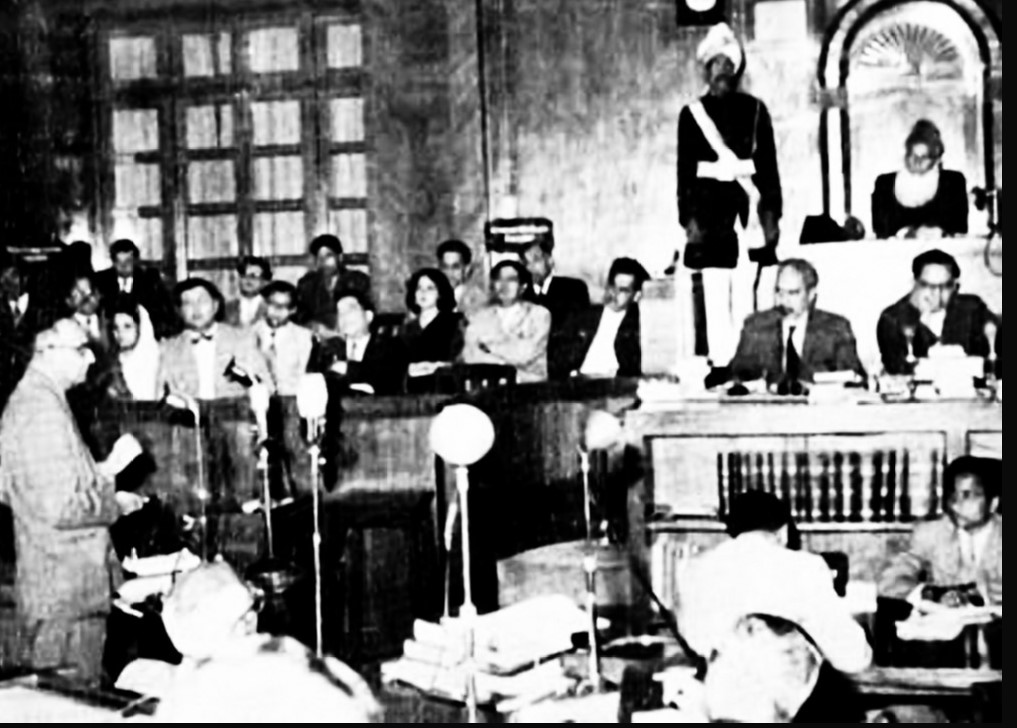Unveiling the Ideology of Pakistan – Historical Roots and Contemporary Significance

Unveiling the Ideology of Pakistan Historical Roots and Contemporary Significance
Introduction
The Ideology of Pakistan stands as the foundational pillar upon which the nation was built. It encapsulates the collective dreams, aspirations, and principles that led to the creation of the Islamic Republic of Pakistan in 1947. Understanding this ideology is crucial not only for Pakistanis but also for those interested in the nation’s history, culture, and identity. In this blog post, we will delve into the historical context, key components, and contemporary relevance of the Ideology of Pakistan.
Historical Context
The idea of a separate homeland for Muslims in the Indian subcontinent began to gain traction in the late 19th and early 20th centuries. Muslims, who were a significant minority in British India, felt the need for a distinct identity and political representation. Visionaries like Allama Muhammad Iqbal and leaders like Muhammad Ali Jinnah played instrumental roles in shaping the ideology of Pakistan.
Key Components of the Ideology
- Islam as the Unifying Factor:The foundation of the Ideology of Pakistan rests on Islam’s pivotal role in uniting Muslims from various ethnic and cultural backgrounds. The aspiration was to create a nation where Islamic principles would guide governance, law, and social norms.
- Separate Nationhood:The ideology argued that Muslims and Hindus constituted two distinct nations due to their religious and cultural differences. This belief laid the groundwork for the demand for a separate Muslim-majority nation, leading to the eventual partition of India and the creation of Pakistan.
- Protection of Minorities:While Islam was envisioned as the guiding force, the Ideology of Pakistan also stressed the importance of safeguarding the rights and interests of religious and ethnic minorities within the new nation. Equal citizenship and religious freedom were key principles.
- Social Justice and Economic Equality:The ideology highlighted the importance of social justice and economic equality as integral components of a just society. The state was envisioned as a welfare state that would work towards eradicating poverty and ensuring the well-being of its citizens.
- Democracy and Constitutional Governance:Despite being an Islamic state, democratic principles and constitutional governance were emphasized. The ideology recognized the importance of representative institutions, rule of law, and respect for human rights.
Contemporary Relevance
While the Ideology of Pakistan was conceived in the mid-20th century, its relevance extends into the modern era. Here’s how it continues to shape the nation:
- National Identity:The ideology serves as a unifying force that binds Pakistanis together, transcending regional, linguistic, and ethnic differences. It provides a shared sense of purpose and identity.
- Foreign Policy:The Ideology of Pakistan influences the country’s foreign policy, especially in relation to Muslim-majority countries and its role in the Muslim world.
- Legislation and Governance:Many aspects of Pakistani law and governance are influenced by the ideology’s emphasis on Islamic principles, though there’s an ongoing debate about the extent of this influence and its compatibility with modern governance.
- Cultural and Social Values:The ideology impacts cultural and social norms, as it emphasizes Islamic values in various aspects of life, from education to family structure.
- Challenges and Debates:The interpretation and application of the ideology remain subjects of debate within Pakistan. Some argue for a stricter adherence to Islamic principles, while others advocate for a more inclusive and pluralistic approach.
Conclusion
The Ideology of Pakistan is a multifaceted concept that has shaped the nation’s course since its inception. Rooted in the desire for a separate homeland for Muslims, it combines Islam with principles of democracy, social justice, and equality. This ideology continues to influence Pakistan’s identity, foreign policy, governance, and societal norms. However, the ongoing debates surrounding its interpretation highlight the complexities of balancing religious principles with the demands of a modern, diverse society. Understanding the Ideology of Pakistan is essential for comprehending the nation’s historical evolution, its current challenges, and its aspirations for the future.
For More Related Articles Browse Our Website Blogster.pk
For social Connection You can also Visit and follow our Social media Platforms
Facebook , Instagram, Linkedin, Pinterest, Quora, Twitter, Youtube.







